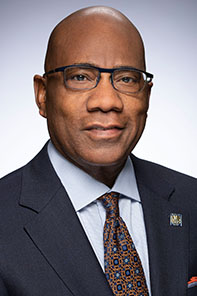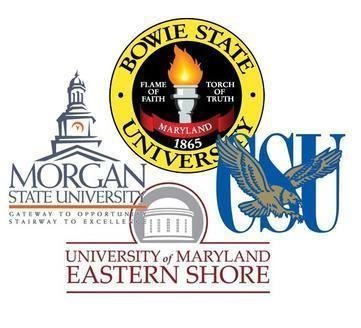Maryland’s Historically Black Colleges and Universities (HBCUs) are making plans to spend the $577 million in much needed funding approved by the state’s Legislature and a federal judge. The final settlement was approved in early May. Maryland Governor Larry Hogan, a Republican, signed the legislation in April approving the 10-year commitment to funding, and the Maryland Attorney General’s Office signed the agreement with attorneys for the plaintiffs to settle the case.
“This settlement marks an historic investment in Maryland’s historically Black colleges and universities,” Attorney General Brian Frosh said in a statement. “It will enable these valued institutions to expand their academic reach and to assist thousands of students with getting the education they deserve.”
This funding is the result of a 15-year federal discrimination lawsuit brought by the Coalition for Equity and Excellence in Maryland Higher Education on behalf of Maryland’s HBCUs for their historical underfunding.
“With today’s historic settlement of the HBCU litigation, we are finally able to move forward to give every college student in Maryland the chance to succeed,” Maryland House Speaker Adrienne Jones, who sponsored the legislation, said in a statement.
“I am proud that the House of Delegates, the Senate and the Legislative Black Caucus all stepped forward to lead in this monumental effort. I also want to congratulate Attorney General Brian Frosh and Mike Jones, lead plaintiff’s attorney, for working with the Legislature throughout this process to get to a signed settlement agreement today (April 28). I look forward to the progress of our students and our HBCUs in the coming years.”

Of the total amount, $555 million will be spent on college and university scholarships, recruitment and improving existing academic programs at Bowie State, Morgan State and Coppin State universities and the University of Maryland-Eastern Shore. The amount also includes $22 million in legal costs for the plaintiffs who spent 15 years fighting in court.
“As one of those institutions, Morgan is rapidly ascending among the most consequential and relevant public urban research universities in the nation. We have our sights set on reaching flagship status and becoming an R1, very high-research institution over the next 10 years,” Morgan State University president David Wilson said in a statement.
“The funds that we will receive as a result of this settlement, will enable us to continue putting into place unique, high-demand academic degree programs to address industry needs and produce research that speaks to the urban condition and brings light to ways in which strategic investments can close the wealth gap and produce a higher quality of life for so many residents and neighborhoods within the urban space.”
Morgan State is the largest of the four universities in the settlement with close to 7,600 students. The Baltimore institution plans to add 25 to 30 new degrees, some of which will be multi-disciplinary and potentially exclusive to the university.
Coppin State University, also in Baltimore, will create more wrap-around services and programs for students with their state funds.
The suit was brought by the Coalition for Equity and Excellence in Maryland Higher Education, a group of the states’ HBCU alum. They sued the state in 2006 for discrimination.
Michael D. Jones, the lead attorney for the coalition, told the media, “It’s one of the largest pro bono civil rights settlements in history, and it is the only case of its kind that had a settlement that went around the governor and directly to the legislators.” Mr. Jones, a partner with the firm Kirkland & Ellis, worked on the lawsuit for 12 years.
The 2006 lawsuit alleged that the state underfunded the HBCUs while developing programs at predominantly White schools that directly competed with and lured prospective students away from HBCUs.
In 2013, a federal judge found that the state had maintained “a dual and segregated education system” that violated the Constitution. This sent the state and the plaintiffs to mediation.
In February 2018, Gov. Hogan proposed a $100 million settlement to be allocated over a 10-year period. This was rejected and the plaintiffs offered to settle the case for $577 million to be “spread over a reasonable time period.” The governor later offered $200 million to settle the case. This was also rejected. In 2019, the 4th U.S. Circuit Court of Appeals ordered a fourth attempt at mediation.
Funding will begin payments in fiscal year 2023, (summer 2022), to the following institutions:
- $24 million a year to Morgan State University
- $16.7 million to Bowie State University
- $9.6 million to the University of Maryland Eastern Shore
- $9 million a year to Coppin State University
“Funding for Black oppression or inequality is never enough. It’s always too late. I don’t want to give anybody any credit for belatedly doing anything akin to what’s right. Obviously, the money will be helpful. HBCUs need that money and have been deprived of that money. They should have it, but is it enough?” Dr. Jared Ball, an Africana Studies professor at Morgan state, told The Final Call,
“No. What is needed is a state based educational apparatus that addresses the continuing inequality suffered by Black people in this country. At minimum, these universities should be protected with all kinds of endowments that we see at other major predominantly-White institutions,” he added.
Millicent Harvey is a senior at Bowie State University. “This is a big win for Maryland’s HBCUs,” she told The Final Call. “Students need those scholarships. They can make a big difference in the lives of so many students. Recruiting new and progressive professors will make a big difference too,” she said.
“HBCUs are the best place for a lot of students. We want the same good academic programs that other Maryland schools offer. We want equity in our education,” added Ms. Harvey.
Dr. Ball offers these suggestions for continued funding. “In terms of the state, I would suggest that instead of a one-time just under $600 million payout, there should be an annual percentage of state revenue that is diverted to the specific needs of Black education not to mention health care, and housing,” he said.
“If we’re just talking about education, there should be an annual portion of the state budget, or the state general revenue or operating budget, that has a hardline item in it for HBCUs. That funding goes to the education of Black students in the state.”













